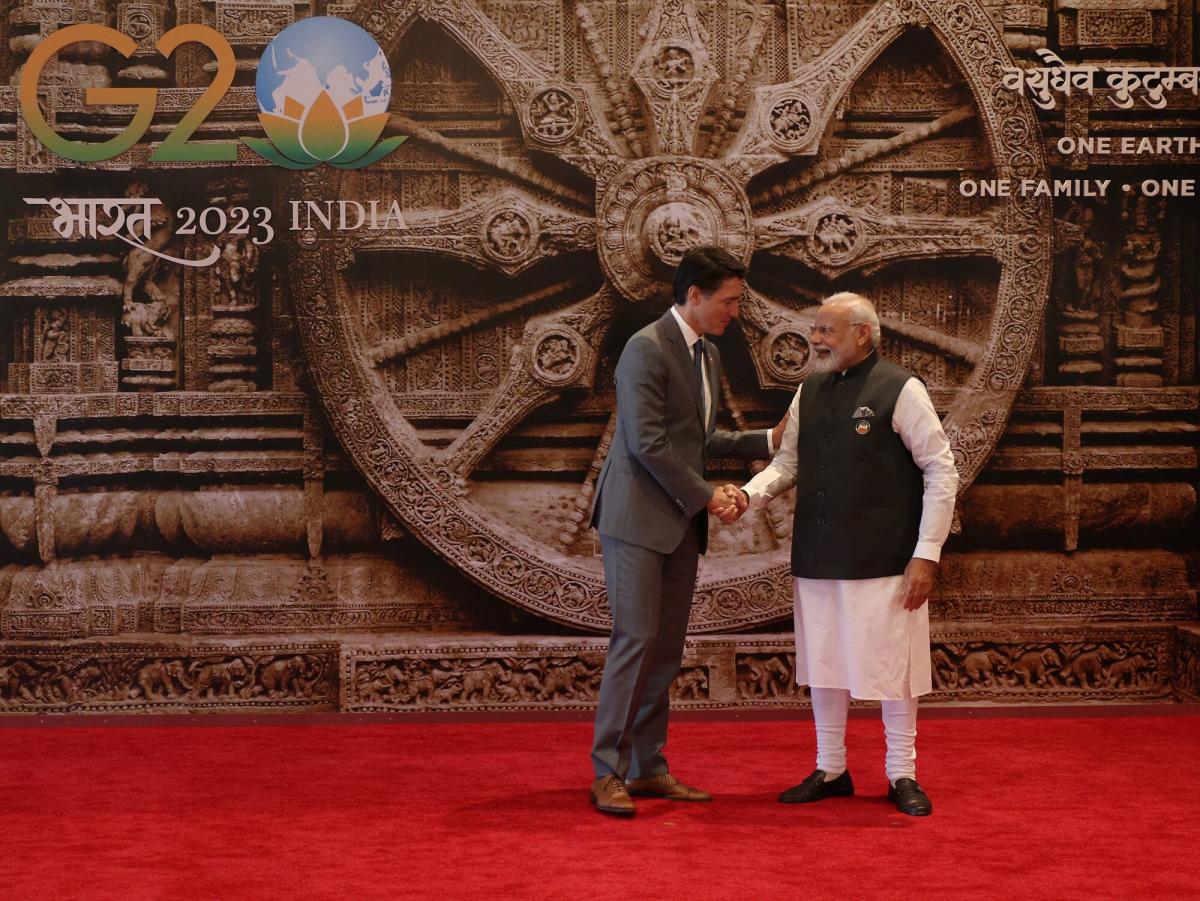Canada Halts Indefinitely Postpones Trade Mission to India Amid Growing Tensions

Canada Halts Indefinitely Postpones Trade Mission to India Amid Growing Tensions
In a surprising turn of events, Canada has announced the indefinite postponement of a scheduled trade mission to India, sending ripples through the international business community. The decision follows the recent pause in trade talks between the two nations, further exacerbating the strain on diplomatic relations.
Canadian Trade Minister Mary Ng’s spokesperson revealed this startling development, leaving the world to speculate on the implications it may have for both countries. While trade missions are typically seen as opportunities for countries to strengthen economic ties and foster collaboration, the decision to postpone this one signals deeper underlying issues between Canada and India.
The diplomatic friction between the two nations reached a boiling point last week during the G20 Summit held in Delhi, where Canadian Prime Minister Justin Trudeau met with his Indian counterpart, Prime Minister Narendra Modi. The meeting was highly anticipated, with hopes that it might help resolve ongoing disputes and promote bilateral cooperation. However, it appears to have had the opposite effect, as India chose to voice its strong concerns regarding what it perceives as “anti-India activities of extremist elements” within Canada.
The decision to indefinitely postpone the trade mission raises questions about the factors contributing to this escalation and the potential consequences for trade, diplomacy, and international relations.
The G20 Summit Meeting: A Critical Turning Point
The G20 Summit in Delhi was a crucial opportunity for Canada and India to engage in high-level discussions on various matters, including trade and security. These meetings are typically characterized by a diplomatic exchange of ideas, and they are often seen as forums to bridge differences between nations. However, the meeting between Trudeau and Modi at the summit took an unexpected and tense turn.

During their meeting, the Indian delegation raised concerns about the alleged involvement of extremist elements within Canada in activities perceived as detrimental to India’s interests. While specific details were not disclosed, this conversation undoubtedly placed a significant strain on the already delicate diplomatic relationship between the two countries.
It’s worth noting that Canada has a sizable Indian diaspora, and issues related to the Indian government’s policies, both domestic and international, have been the subject of discussions and protests within Canada. The presence of these sensitive issues on the international stage has further complicated diplomatic negotiations.
The Trade Mission: A Victim of Diplomatic Strain
Trade missions serve as vital mechanisms to enhance economic partnerships and open up new avenues for commerce. When countries announce such missions, it is typically seen as a proactive step toward fostering stronger ties and economic collaboration. However, Canada’s decision to indefinitely postpone its trade mission to India sends a powerful signal that diplomatic relations between the two nations are at a precarious juncture.
The postponement of the trade mission is likely to have economic repercussions for both Canada and India. Such missions are typically accompanied by business delegations and representatives from various industries looking to explore opportunities for investment and trade. By suspending the mission, these economic opportunities are put on hold, and businesses in both countries may suffer as a result.
Furthermore, the indefinite nature of the postponement raises questions about when, or if, the trade mission will ever take place. This uncertainty adds another layer of complexity to the relationship between Canada and India, potentially undermining trust and confidence in future negotiations.
The Broader Implications: Geopolitical Tensions
The decision to postpone the trade mission highlights the broader geopolitical tensions at play. Canada and India are not the only countries experiencing strained relations on the international stage, as many nations grapple with complex issues ranging from trade disputes to security concerns.
The international community closely watches how countries navigate these diplomatic challenges. The postponement of the trade mission underscores the need for careful diplomacy and constructive dialogue in resolving conflicts and advancing global interests.
The Path Forward: Navigating Diplomatic Challenges
While the indefinite postponement of the trade mission to India is undoubtedly a setback for both countries, it is crucial to recognize the potential for diplomatic resolution. Diplomatic challenges are not uncommon in international relations, and they often require a multifaceted approach to reach a mutually beneficial solution.
First and foremost, open and honest dialogue is essential. Canada and India must engage in diplomatic conversations to address the concerns raised during the G20 Summit. Clear communication can help dispel misunderstandings and pave the way for the resumption of trade talks and the trade mission itself.
Additionally, both countries should seek common ground and identify areas of shared interest. Trade and economic collaboration have the potential to benefit both nations, and finding opportunities for cooperation can be a catalyst for improved diplomatic relations.

Lastly, it is vital for Canada and India to consider the long-term implications of their actions. The indefinite postponement of the trade mission is a significant decision, and both countries must carefully assess the impact it may have on their respective economies and global standing.
Conclusion
The indefinite postponement of Canada’s trade mission to India has sent shockwaves through the international community, signaling a new level of strain in diplomatic relations between the two countries. The tensions that surfaced during the G20 Summit meeting between Prime Minister Trudeau and Prime Minister Modi have cast a shadow over their potential for collaboration.
In this era of interconnected global economies and complex international relationships, resolving diplomatic challenges is of paramount importance. Canada and India must prioritize open dialogue, seek common ground, and consider the long-term consequences of their actions to navigate this challenging period successfully.
The world watches closely as these two nations grapple with their differences, hoping that diplomacy and cooperation will ultimately prevail, and that the postponed trade mission may yet become a symbol of reconciliation and renewed partnership between Canada and India.





